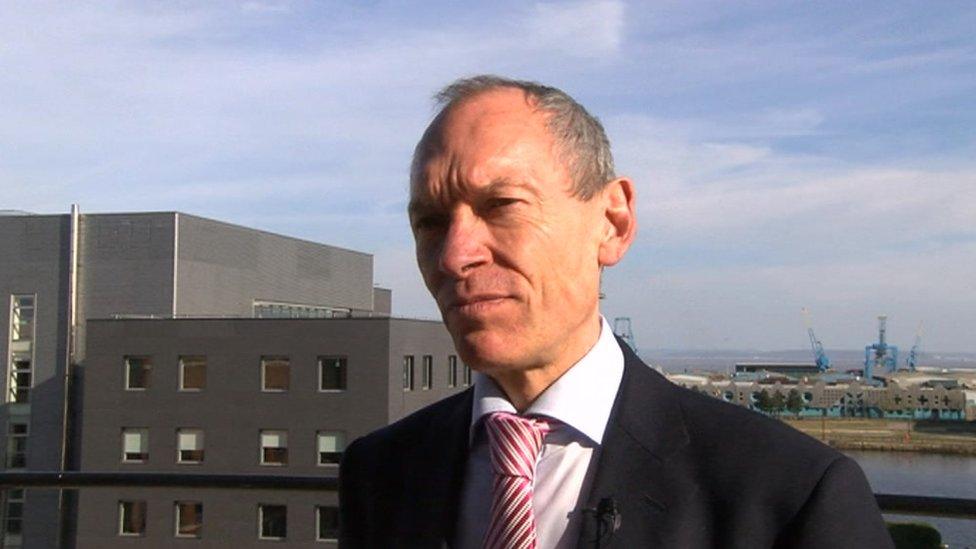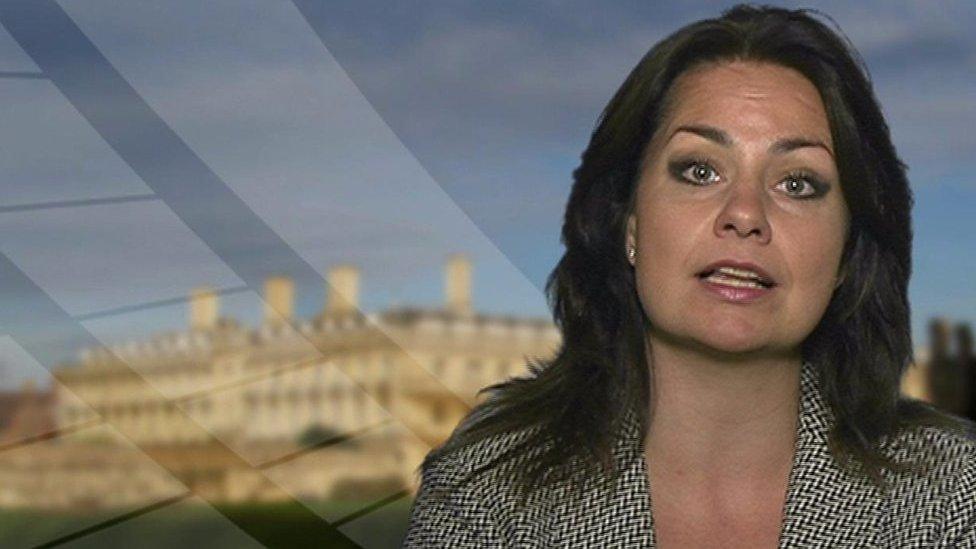Universal Credit could increase poverty, warn AMs
- Published

Claimants could face hardship, deprivation and poverty if problems with the rollout of Universal Credit are not addressed, AMs have warned.
Members of the assembly's cross-party equality committee said the introduction of it should be paused.
Universal Credit combines six benefits into a single payment and is being introduced gradually across the UK.
A spokesman for the UK government said Universal Credit was helping people move from benefits to work faster.
The AMs join some Tory MPs and Citizens Advice in calling for a halt - prompted by concerns over delays to payments for new claimants.
In a letter to Department for Work and Pensions (DWP) minister David Gauke, committee chairman John Griffiths said: "We would like to add our voices to the growing list of those who have called for you to pause rollout while... operational issues are dealt with.
"We are concerned that as the rollout starts to reach more complicated cases, that if these issues are not addressed, there could be significant increases in hardship, deprivation and poverty."

John Griffiths warned of "significant increases in hardship, deprivation and poverty"
The letter detailed a number of concerns raised with the committee about the benefit, including delays in payments after initial application and worries sanctions could force claimants to choose between paying rent or covering other costs such as food.
"We heard that in its current form Universal Credit is not likely to meet some of its objectives," Mr Griffiths wrote.
"In particular, that while people will be pushed toward work, it will be into work which is not likely to lift people out of poverty and therefore in-work poverty will continue to rise."
The cross-party committee includes four Labour AMs, two Plaid AMs, one UKIP member and one Conservative.
A DWP spokeswoman said: "Universal Credit lies at the heart of our commitment to help people improve their lives and raise their incomes.
"The vast majority of claimants are paid in full and on time and are comfortable managing their money.
"Advance payments and budgeting support is available for anyone who needs extra help."
- Published29 September 2017

- Published15 September 2017

- Published13 May 2024

- Published2 October 2017

- Published15 September 2017
